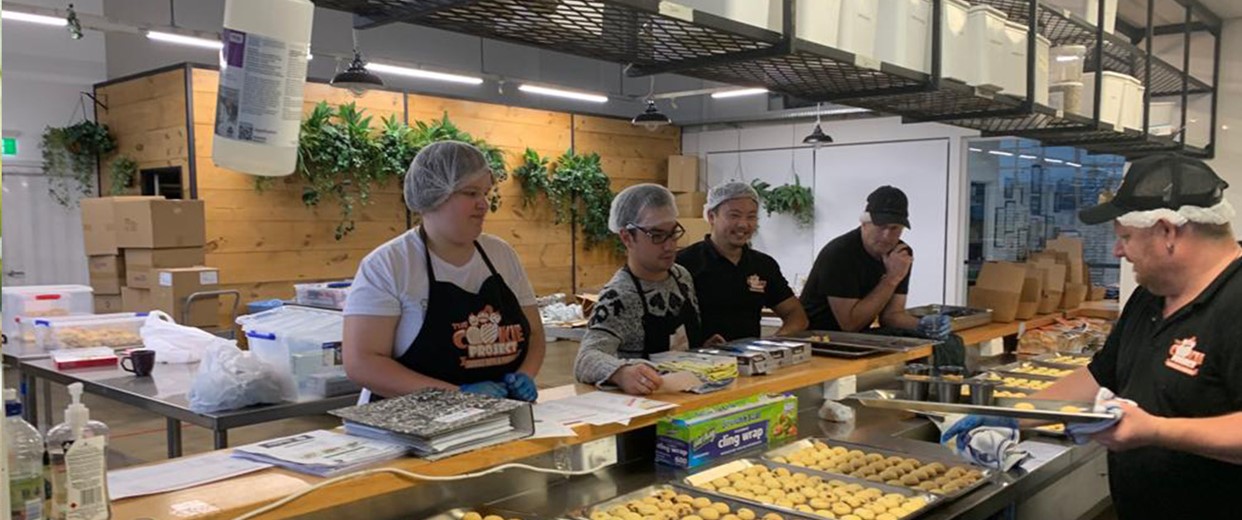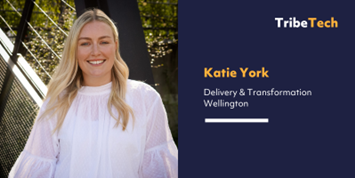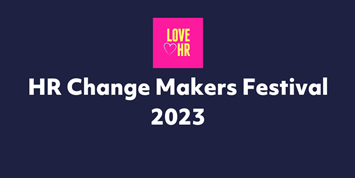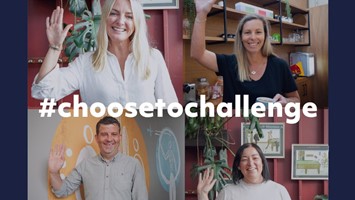Accessibility must be part of the conversation
Over the last year I guess we've embarked on a diversity and inclusion journey, not really knowing what we’d find out and learn. As you know, we became members of Diversity Works New Zealand, thinking that we’d start a process to help us and our partners attract diverse talent that felt included. But the reality is, what started as a journey where we thought there would be a defined outcome, couldn’t have been more different from where it’s taken us.
For me, the most incredible part of this journey so far, has been hearing stories, and later sharing stories, of what D&I means to individuals and organisations. One instance that really stands out for me, is when we published our whitepaper document about unconscious bias and didn’t include accessibility in our conversation. We had some very open feedback on LinkedIn which challenged our thinking. At first, you get that uncomfortable feeling of “oh gosh, they’re right”, we should have included that as an example as well as the other types we called out. Then you start to think, okay, what can we learn from this, what can we do. Thank you Eric (Co-founder, The Cookie Project) and Tanya (The Accessibility Tick Programme Lead) for calling it out!
Within a couple of weeks, myself and Emily were in the Eat my Lunch kitchen, with Eric and Graeme, and employees of The Cookie Project making cookies. It was an absolute highlight of this year spending time with them and people like Amy, Speedy, and Aaron who are employed by The Cookie Project, and all have disabilities. We listened to their stories, shared some of our stories, made cookies, sang with them, and genuinely enjoyed our time, because they made us feel like we belonged.
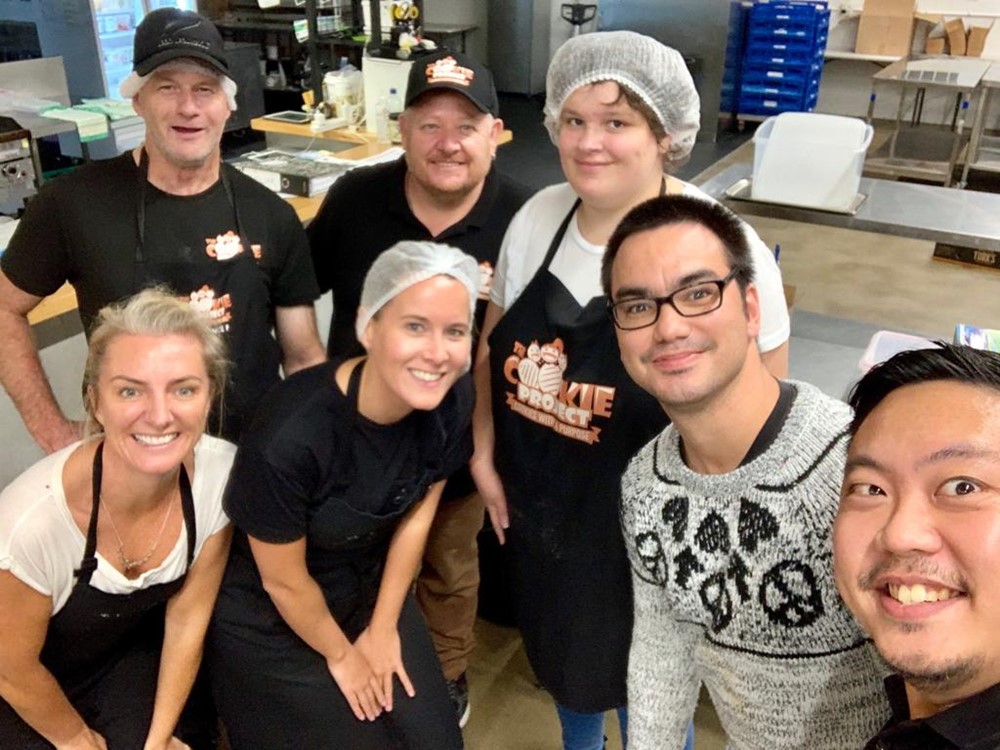
A couple of weeks after that, we were at the Blind Foundation, hearing from Tanya about accessibility. We asked her questions that made us feel uncomfortable – we didn’t know whether we should know the answer or not.
What’s the most inclusive way to talk about “disabled people”? we asked. (because that’s the language we knew).
What is classed as a disability in New Zealand?
What does accessibility even mean?
At every step, Tanya, Eric and Graeme, made us feel included. They created a forum where we could speak openly.
They gave us scenarios that were pretty confronting, but that are an everyday reality for some people with accessibility needs. Like being told to put that you have a disability on your CV, and then never getting a call, let alone an interview. Going into a bar and not being able to order a drink because the bar is too high. Not being able to work at a business because you can’t use the parking. Not being able to understand a video as there’s no subtitles. Getting paid $2.30 per hour because there’s a loophole in the law.
It made me feel lots of things. Uncomfortable, sad, a bit embarrassed, angry, but also, I felt this drive me to want to share this and do something about it.
A few weeks later, we asked Tanya, what she thought the definition of “accessibility” was, and something she said really resonated with us, she said “do you feel like you belong when you go about your daily life?”.
In those few scenarios above, those people didn’t feel like they belonged – the world around them wasn’t created with them in mind. When they couldn’t order a drink at the bar because no one could see them, when there was nowhere for them to park, when they didn’t get a call back about a job because it felt too hard, and that’s not okay.
I guess what I’m saying is, it’s okay not to know exactly what to do because it’s new to you. But now that you’ve read this, you do know. The point of this is to start thinking about everybody you come across. To think about other people, and at the end of the day, to know you’ve done what you can to make people feel like they belong.
We’ve made new friends and new partners along this journey we’re on. We’ve had quite a few realisations, and we’ve made a conscious effort to evaluate what we can do. We have some projects underway and we’re really excited to share with you in time.
We’re always here to share stories, impart any of the learnings we’ve made so far and always listen to yours. Feel free to get in touch with us if you’re keen to help out at The Cookie Project or learn more about The Accessibility Tick.
Thanks heaps,
Emma



